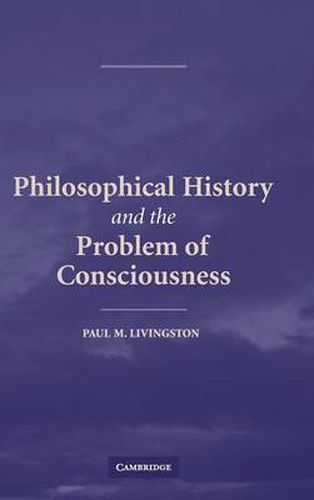Readings Newsletter
Become a Readings Member to make your shopping experience even easier.
Sign in or sign up for free!
You’re not far away from qualifying for FREE standard shipping within Australia
You’ve qualified for FREE standard shipping within Australia
The cart is loading…






The problem of explaining consciousness today remains a problem about the meaning of language: the ordinary language of consciousness in which we define and express our sensations, thoughts, dreams and memories. This book argues that the contemporary problem arises from a quest that has taken shape over the twentieth century, and that the analysis of history provides new resources for understanding and resolving it. Paul Livingston traces the development of the characteristic practices of analytic philosophy to problems about the relationship of experience to linguistic meaning, focusing on the theories of such philosophers as Carnap, Schlick, Neurath, Husserl, Ryle, Putnam, Fodor and Wittgenstein. Clearly written and avoiding technicalities, this book will be eagerly sought out by professionals and graduate students in philosophy and cognitive science.
$9.00 standard shipping within Australia
FREE standard shipping within Australia for orders over $100.00
Express & International shipping calculated at checkout
The problem of explaining consciousness today remains a problem about the meaning of language: the ordinary language of consciousness in which we define and express our sensations, thoughts, dreams and memories. This book argues that the contemporary problem arises from a quest that has taken shape over the twentieth century, and that the analysis of history provides new resources for understanding and resolving it. Paul Livingston traces the development of the characteristic practices of analytic philosophy to problems about the relationship of experience to linguistic meaning, focusing on the theories of such philosophers as Carnap, Schlick, Neurath, Husserl, Ryle, Putnam, Fodor and Wittgenstein. Clearly written and avoiding technicalities, this book will be eagerly sought out by professionals and graduate students in philosophy and cognitive science.